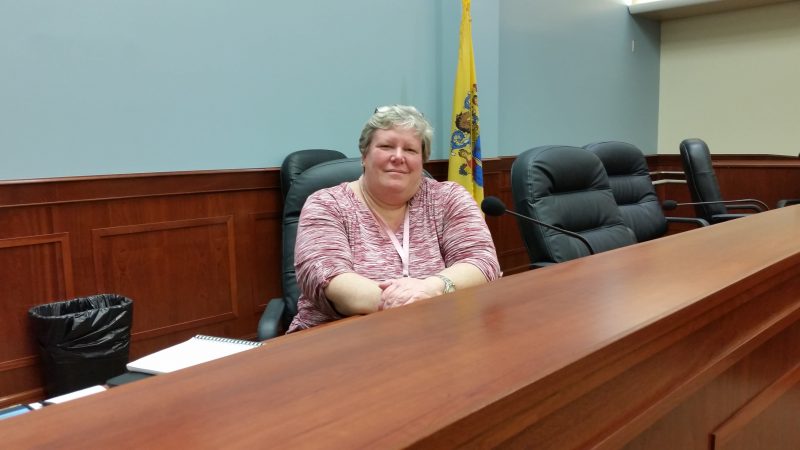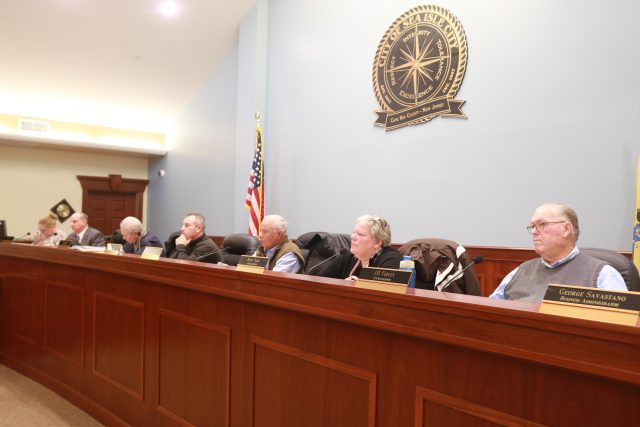By Donald Wittkowski
Sea Isle City plans to ban the sale and distribution of marijuana as the state moves closer toward legalizing recreational pot smoking in New Jersey.
Voting 5-0, City Council introduced an ordinance Tuesday that would prohibit the sale, cultivation, distribution, manufacturing and testing of both medical and recreational marijuana in all parts of town. The ban would also include marijuana paraphernalia.
Council President Jack Gibson said the ordinance is a preemptive strike to ban the sale and distribution of marijuana in Sea Isle as discussions continue among state lawmakers to legalize recreational pot smoking in New Jersey.
“We’re preparing ourselves in advance,” Gibson said.
A public hearing and final vote on the ordinance are scheduled at Council’s March 26 meeting, 10 a.m. at City Hall.
Sea Isle is following other towns that have already passed local laws banning marijuana sales in anticipation of the state Legislature and Gov. Phil Murphy legalizing the recreational use of pot. The governor made it a campaign promise to make recreational pot smoking legal, but the Legislature has not yet been able to agree on a bill.
Proposed state legislation to legalize recreational pot includes a “local prerogative” allowing municipalities to ban the sale and distribution of marijuana. Sea Isle’s ordinance notes that the city is exercising its right to “opt out” of marijuana sales.
“It makes clear Sea Isle’s position on marijuana in the municipality,” City Solicitor Paul Baldini said during Tuesday’s Council meeting.

The ordinance says the sale and distribution of marijuana would be “detrimental to the public health, safety and welfare and inimical to the current zoning of the city.”
“Given the current Master Plan of the City of Sea Isle City and the Development Ordinances implementing that Plan, there are no areas where the sale of and distribution of recreational marijuana can be safely established given the overwhelming security and safety concerns,” the ordinance states.
Gibson said he has concerns about pot users driving while under the influence.
Councilwoman Mary Tighe said she is particularly worried about the effects of marijuana on children.
“There’s so much controversy now about marijuana, cigarettes and vaping. There’s lots and lots of medical support and studies showing that it’s not good for the development of children’s brains,” said Tighe, who serves as assistant director of nursing for the Cape May County Health Department.
Tighe, however, noted that she supports the use of medical marijuana.

Sea Isle’s proposed ordinance includes language that would prohibit “any business or enterprise of any nature” from selling, manufacturing or distributing medical or recreational marijuana.
The ordinance carves out an exception, though, that allows medical marijuana to be sold by licensed pharmacies such as CVS and prescribed by doctors, Baldini said.
“This ordinance is not intended to prohibit or otherwise restrict the dispensing of any pharmaceutical medication or other legal substance by a pharmacy or drug store under the supervision of a licensed pharmacist,” it says.
In other business Tuesday, Council unanimously introduced the city’s proposed 2019 municipal budget. The $24.6 million spending plan cuts taxes by a half-cent and reflects the city’s exceptionally strong financial structure, Mayor Leonard Desiderio said.
Citing the city’s solid finances, Desiderio is already promising not to raise local taxes in 2020.
Under the 2019 budget, the owner of an average home assessed at $670,445 will pay $2,547 in local taxes this year. The figure does not include county and school taxes. The half-cent cut in local taxes will save the average homeowner about $35 for the year, said Paula Doll, the city’s chief financial officer.

The city will keep water and sewer rates the same in 2019, reflecting the sixth straight year there has not been an increase in those charges. The average homeowner pays $1,220 annually for sewer and water service, Doll said.
The 2019 budget is down slightly from the $24.7 million spending plan last year. The city is benefiting from a $5.6 million surplus in the 2019 municipal budget.
A $500,000 reduction in healthcare premiums for retired municipal workers who are part of the city’s medical plan helped to cut the budget expenses for 2019, Doll said.








